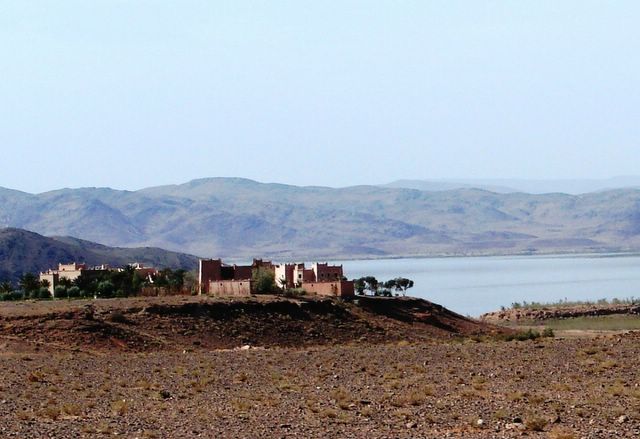Global Competitiveness Report
Global Competitiveness Report 2005-2006 (Click for Report)
Europe's largest economies – Germany, the U.K., France, Italy, and Spain – are all losing ground in an annual survey on global competitiveness, dragged down by concerns of sluggish economic growth and high budget deficits.
The rankings, published by the Geneva-based World Economic Forum, pit Italy and Poland as the least competitive members of the European Union. Italy has slipped steadily to 47th of the 117 nations measured this year from 26th in 2001. Italy is burdened by perceptions that its government is interfering in the private sector, as recently alleged in the Bank of Italy's intervention in banking mergers. Finland for the third consecutive year and the U.S. for a second straight year, respectively, once again top the international organization's list of most competitive economies in the annual survey, though the U.S.'s image is tarnished by the health of an economy posting large budget deficits and near-record trade deficits.
Along with Finland, the Nordic European countries of Sweden, Denmark, Iceland and Norway hold five of the top 10 spots, as they did last year.Other stars include Taiwan and Singapore, ranking fifth and sixth, respectively, ahead of 12-seated Japan, which is still suffering from years of deflation.
China and India, often cited as the greatest competitive threats to western economies as they flood markets with cheap products and labor, ranked 49th and 50th. Despite their high growth rates in recent years, the survey found that both countries need to cut red tape, educate their people and improve infrastructure in order to continue to compete in the years ahead.
The World Economic Forum defines competitiveness not just on the basis of productivity and exchange rates. It also looks at policies and institutions that can affect productivity and prosperity.
Western Europe's slip in competitiveness from the beginning of the decade – though from fairly high levels -- reflects the region's economic development of late. Gross domestic product in the 12-nation euro zone that forms the bulk of the region's economy is projected to have expanded on average at just 1.3% during the first five years of this decade, compared with more than 2% during the previous decade. The euro zone is forecast to grow just 1.2% this year, behind 3.5% growth in the U.S. and 4.3% growth globally, according to recent forecasts by the International Monetary Fund. The region's budget deficit has risen to 2.7% of GDP in 2004 from 1.9% of GDP in 2001.
The United Kingdom slipped to 13th place from 11th last year; Germany to 15 from 13; and France to 30 from 27. The dimmer outlook for nations such as Germany and France, which the IMF expects to grow this year 0.8% and 1.5%, respectively, is even beginning to harm the outlook for relatively robust Spain, which has been one of the euro zone's fastest growing economies in recent years. Spain's overall ranking dropped to 29 from 23, and the indicator ranking Spain's economic outlook has dropped to 65 this year from 29 in 2001.
Country Rankings (World):
1. Finland 2. USA 3. Sweden
4. Denmark 5. Taiwan 6. Singapore
7. Iceland 8. Switzerland 9. Norway
10. Australia 11. Netherlands 12. Japan
13. UK 14. Canada 15. Germany
16. New Zealand
The Arab World Competitiveness Report 2005 (Click for Report)
The Arab world finds itself at a critical crossroads.Population growth has pushed unemployment rates to some of the highest levels in the world, and brought into sharp relief the urgent need for a reorientation of economic policies. Reforms are essential to engender a process of sustained job creation, well into the next decade, if the region is to avoid the inefficiencies associated with poor utilization of human resources, to say nothing of the social and political costs.
The call for urgent action is underscored not only by the burgeoning pressures on labor markets, but also the resurgence of other major emerging economies—in China, India, and central and eastern Europe, to name a few—whose presence in the global economy is quickly expanding, against a background of sustained improvements in per capita incomes, institutional development and international competitiveness.
To remain viable in the global economy in areas other than the energy sector, it is vitally important that the Arab countries improve the overall quality of governance, significantly raise their levels of competitiveness, improve macroeconomic management, institute reforms to enhance the efficiency of public sector institutions and, facilitate the absorption of new technologies.
Country Rankings (Arab World):
1. Qatar 2. UAE 3. Bahrain
4. Oman 5. Jordan 6. Tunisia
7. Saudi Arabia 8. Morocco 9. Egypt
10. Algeria 11. Lebanon 12. Yemen


























4 Comments:
Hi Jawad,
Got back from Morocco?
I wonder what are the main criteria behind this ranking. It looks like the main factor is the rate of privatization within a country. Privatization of everything, this is the mantra of the IMF. That’s, at least, how I understand why France is ranked 27th and Morocco is ahead of Algeria, knowing that the latter has important resources such as gas and oil, with prices reaching unprecedented levels. Anyway, I am curious to see how Morocco will behave in five years after much of it sectors get privatized, especially with the US-Morocco free trade agreement taking effect next year. I also find it strange that Italy is criticized for interfering in the private sector, while there is no hint whatsoever to the protectionism the US practice on the agricultural sector as well as on others. I find it strange also that China and India, seen really as the “threat” to western economy hegemony, are the only ones singled out for their insufficient record on education. Using this argument, Morocco should be behind Algeria…
That’s, at leastm my first impression after reading the report.
October 06, 2005
Jallal: I just got back last weekend. Much to talk about. By the way, Mabrouk Ramadan.
Regarding the report - No privatization is not the only criteria, otherwise Morocco would be ahead of many Arab countries. Competitiveness measures look at the business environment in terms of entry regulations, obstacles to participation, comparative advantage, human resources, private entrepreneurship, and more. There is no doubt in my mind that the global competitiveness of Morocco is weak and tumbling down due mainly to the absence of a comparative advantage in global markets + insufficient reforms + lack of a strategic vision to create future competitiveness for the people of Morocco. Let us not forget the human development situation Morocco finds itself in today and how much of a handicap that is. The main question one can ask without having to dwell in macroeconomic indicators is the following: "Are we needed in the global market? - do we produce something of value to the world?" If the answer is no, then that's a reflection of poor global competitiveness - no need to look at statistics.
October 10, 2005
Salam
Thanks Jawad for this report.. Please where can I find the original version? The link you provided doesn't work.
Thks
Hihi Michael Porter is very present in your way of thniking :-)
I think that many institutions that have been taken into consideration (education, social institutions)explain why France is ranked 30 (you know immigration problems etc..) When you talk about France you shouldn't talk only about the white, beautiful and rich french, many immigrants have so many problems and that explains the France "bad scores" and Sarkozy's new politics to expulse the maximum immigrants from its territory must be a response to that :-)
(Sorry for my English, I'm trying to improve it :-)
October 10, 2005
Hi Lili. Thanks for your comment and heads-up re the links - and most importantly, welcome. Hope you come back often.
I updated the links in the post. They should take you to the the appropriate site where a PDF of the reports can be viewed.
By the way, I am flattered that you can detect Michael Porter in my writing. He is after all an impressive scholar and an authority on competitive strategy.
October 10, 2005
Post a Comment
<< Home